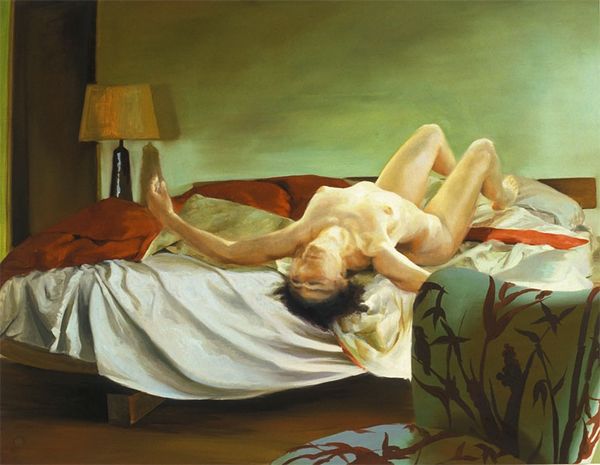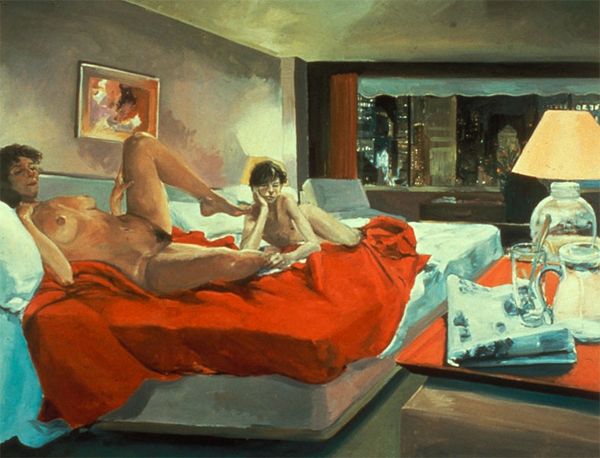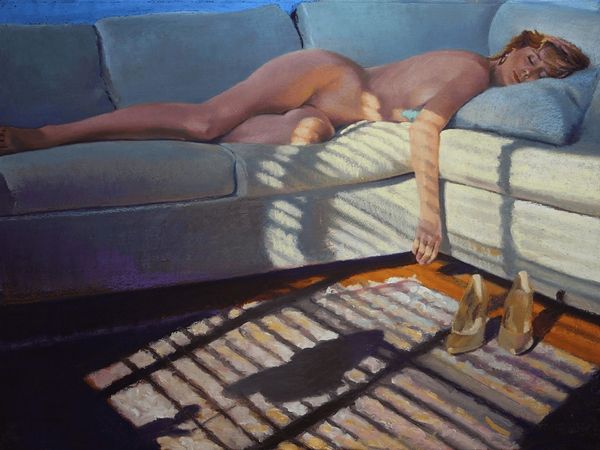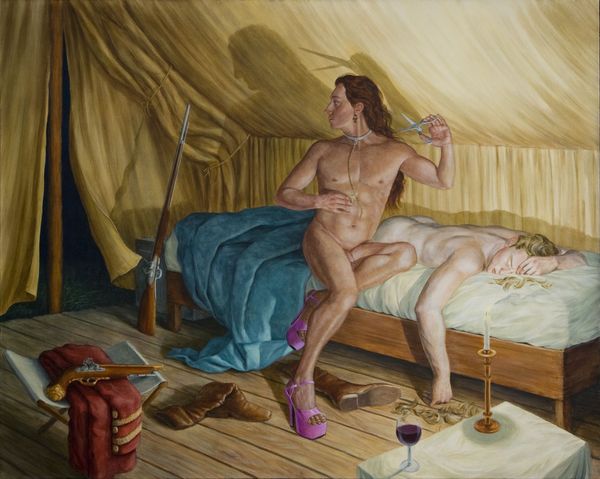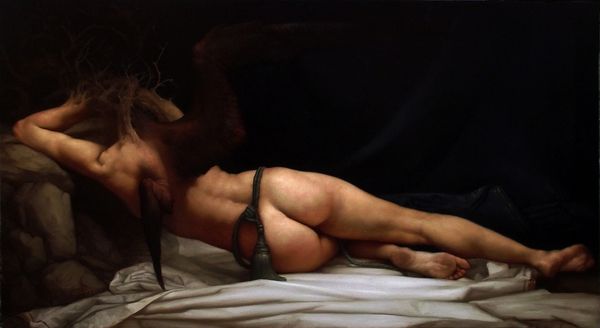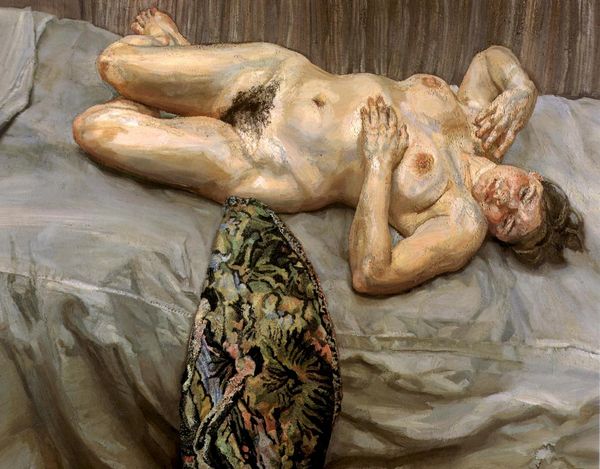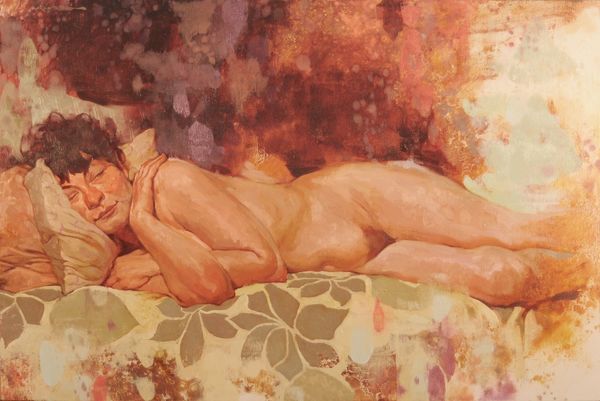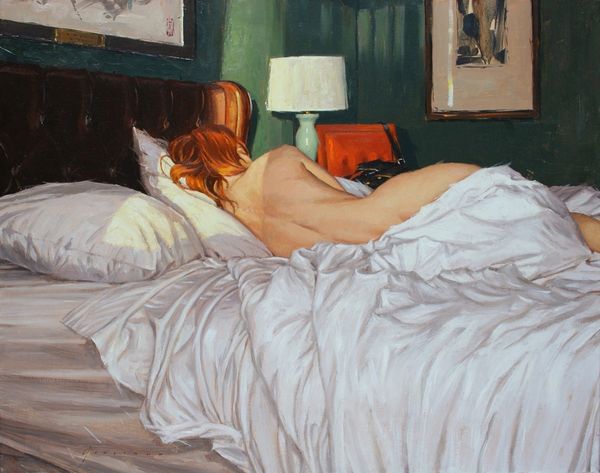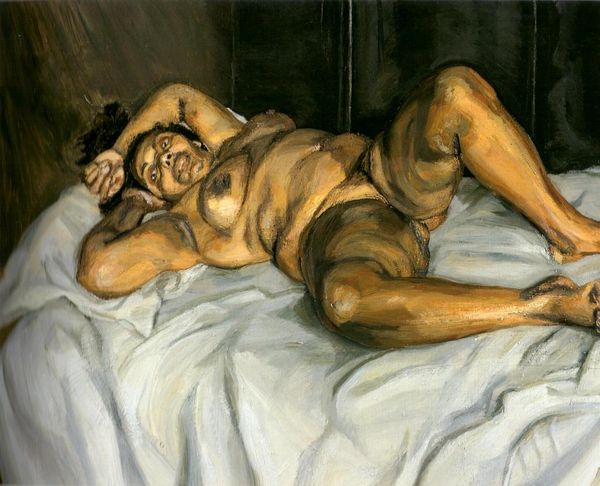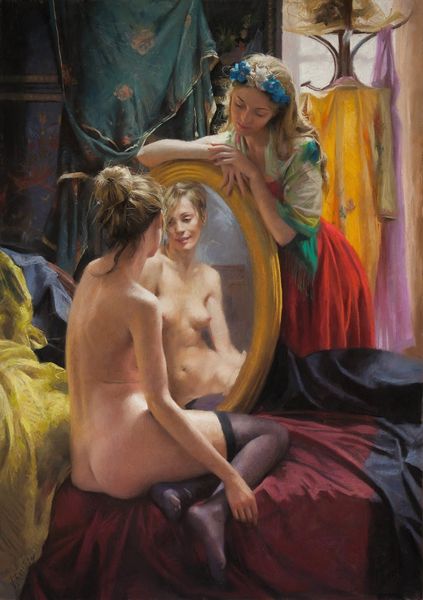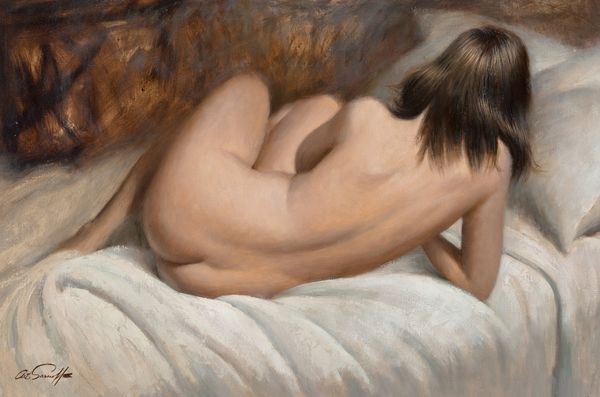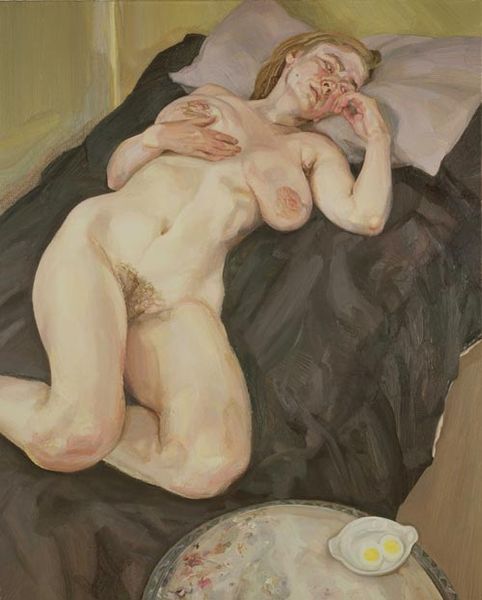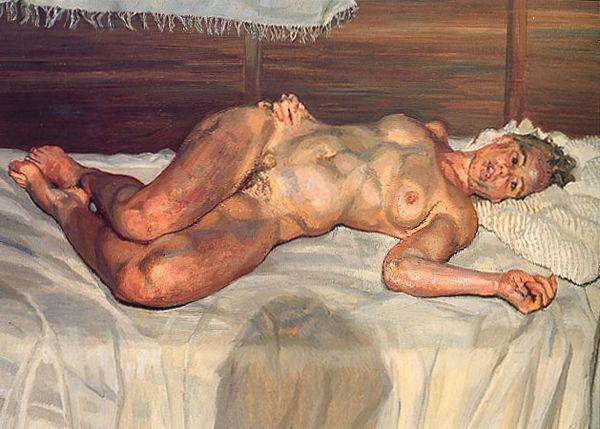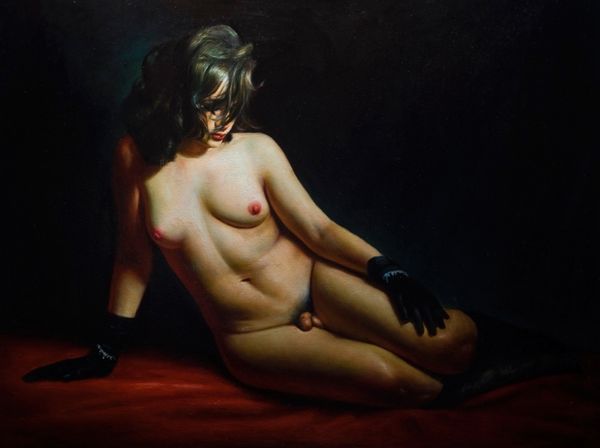
oil-paint
#
figurative
#
oil-paint
#
figuration
#
oil painting
#
neo expressionist
#
romanticism
#
genre-painting
#
nude
Copyright: Modern Artists: Artvee
Editor: This oil painting is "The Spider and the Fly" by Nigel Van Wieck. It presents a very charged and intimate scene, but I'm also struggling to place it within a particular art-historical movement. The nude figure recalls historical paintings, but the style feels more contemporary. What do you see in this piece that might help me understand its context? Curator: It’s fascinating, isn't it? I find the title incredibly telling. "The Spider and the Fly" immediately conjures up this idea of predator and prey, manipulation and entrapment. Thinking about its place in art history, and given that we don't have a specific date for this work, what art movements from the late 20th century come to mind? Ones where artists grappled with complex narratives and revisited older styles with a critical eye? Editor: I'm wondering about Neo-Expressionism because of its focus on subjective emotion and the raw application of paint, but there's also something about the setting that reminds me of Romanticism's interest in heightened drama. Curator: Precisely. Neo-Expressionism definitely informs the approach, the raw quality is evident, yet the classical, even theatrical, setting—the draped bed, the suggestive poses—creates an intentionally staged drama reminiscent of Romantic tableaux. Consider also the social context: what does it mean to depict a nude woman in the late 20th/early 21st century? What is Van Wieck suggesting about power dynamics or gender roles in such a personal setting? Is this merely voyeuristic, or is he critiquing something? Editor: So the tension between the artistic styles is there on purpose, serving as a question for the audience. Curator: Exactly. He's engaging with art history, specifically representations of women, while simultaneously making a statement about contemporary relationships and societal power structures. It reflects our own anxieties and expectations. Editor: This piece makes me consider how historical context drastically changes the impact of what feels like a very traditional depiction. I now see beyond a single emotion to grasp that broader cultural question. Thank you for sharing your perspective!
Comments
No comments
Be the first to comment and join the conversation on the ultimate creative platform.
